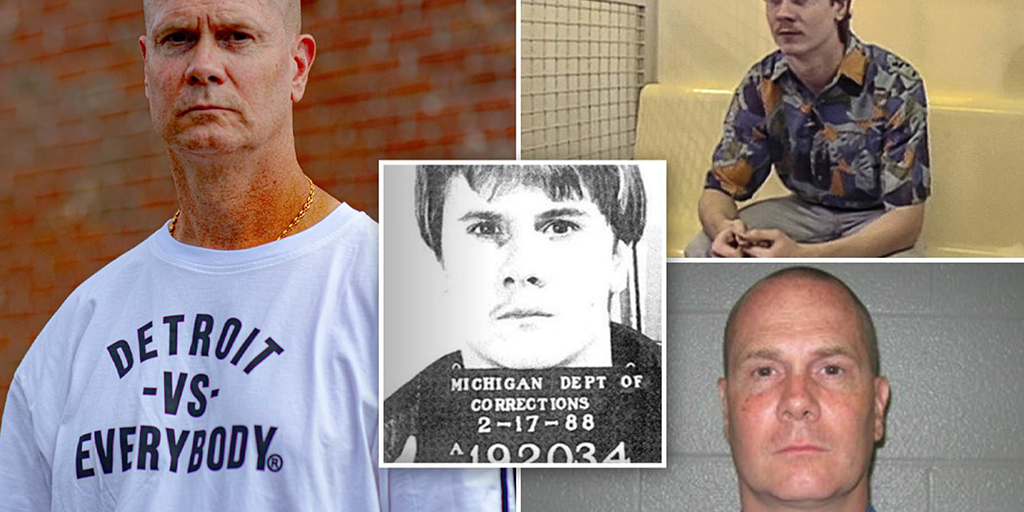![]()
Richard Wershe Jr., a 17-year-old, was arrested in his home in 1988 with 17 pounds of cocaine, catapulting him into the headlines as the alleged leader of a drug cartel. Dubbed “White Boy Rick” by the media, he was portrayed as a dangerous cocaine godfather. However, the truth was far more complex.
Unbeknownst to the public, White Boy Rick was not a drug lord but an FBI informant. At the tender age of 14, he was recruited by the FBI, who taught him how to navigate the drug trade and infiltrate one of Detroit’s most notorious gangs. His role was to gather critical information on criminal activities and assist in the dismantling of criminal networks.
As White Boy Rick delved deeper into his undercover work, he stumbled upon a troubling revelation: police corruption that reached the highest levels, including the mayor of Detroit. This discovery marked a turning point in his life. The very individuals who had trained him severed their ties, leaving him vulnerable and exposed. Soon after, he found himself thrown into prison for life.
White Boy Rick, reflecting on his ordeal, lamented, “I was brought into this life by law enforcement. I was taught it, they left me alone, and a year later I’m busted and put in jail for life.” The FBI, responsible for initiating his journey, had abandoned him to the perils of the criminal justice system.
Richard Wershe Sr., White Boy Rick’s father, played a pivotal role in his son’s involvement with the FBI. Living in a Detroit slum overrun by drugs and crime, Richard Wershe Sr. was not one to abide strictly by the law. When approached by the FBI, he saw an opportunity to provide for his family while combating drug dealers in his community. With financial incentives and the allure of being an undercover cop, Richard Wershe Jr., just 14 years old, eagerly embarked on the dangerous path laid before him.
As White Boy Rick immersed himself in the drug underworld, he cultivated relationships with notorious criminals, gathering crucial intelligence for the FBI. Astonishingly, the FBI even instructed him in the ways of a gangster, teaching him how to sell drugs on the streets and providing funds to purchase cocaine as evidence.
However, as White Boy Rick’s information exposed widespread police corruption, he became a liability to both criminals and corrupt law enforcement officials. Threats against his life multiplied, culminating in an alleged hit order from Inspector Gil Hill, a prominent figure in the Detroit Police Department. Despite taking a bullet to the stomach, presumably in an attempt on his life, White Boy Rick persevered.
His remarkable journey led him to the pinnacle of the drug world, surpassing even the infamous Johnny Curry. In the eyes of fellow drug dealers, his rise was undeniable. Yet, behind the scenes, the FBI grappled with their own complicity in creating this new drug lord. Agent Gregg Schwarz conceded, “We brought him into the drug world. And what happened? He became a drug dealer. And we’re surprised by that?”
White Boy Rick’s tumultuous saga reached its climax when he was apprehended by the Detroit police just days before his 18th birthday. Sensationalized by the media, he was portrayed as a kingpin, with images of a criminal hierarchy presenting him as the central figure. The judge showed no leniency, condemning him as “worse than a mass murderer.” Despite Richard Wershe Sr.’s pleas for FBI assistance, his son was sentenced to life in prison.
For three decades, Richard Wershe Jr. languished behind bars while those he had exposed walked free. The injustice he faced was finally brought to light through the diligent work of investigative journalists. Evan Hughes, a freelance writer, delved into Wershe’s claims of conspiracy and discovered that he had indeed been manipulated and abandoned by the FBI. The revelation sparked widespread attention, leading to Hollywood adapting White Boy Rick’s story into a film and an HBO documentary crew capturing his remarkable journey.
After enduring 30 years of imprisonment, White Boy Rick was granted parole on July 14, 2017. His newfound fame generated public awareness of the systemic issues within the criminal justice system, shedding light on police and parole reform. While Richard Wershe Jr. had lost the prime years of his life, he vowed to never commit another crime.
The story of White Boy Rick serves as a stark reminder of the need for comprehensive reform within the justice system. It highlights the dangers of manipulating young individuals for undercover work without providing adequate protection and support. Richard Wershe Jr.’s journey exposes the far-reaching consequences of police corruption and the urgent necessity for a fair and equitable system that prioritizes rehabilitation and justice over retribution.













